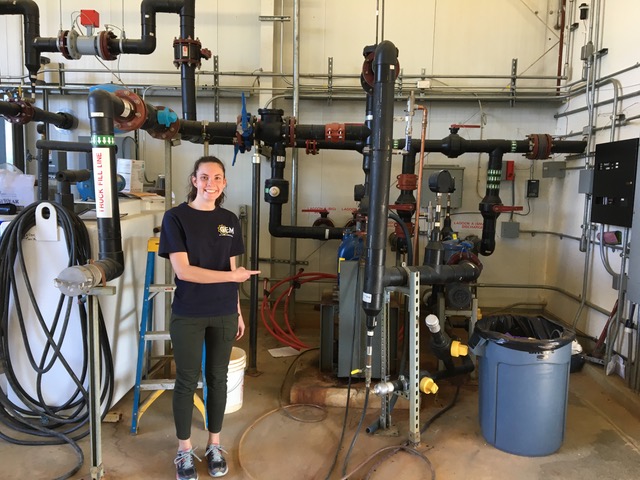
Internship: Student’s Analysis Leads to Potential Cost and Energy Savings
Tessa Weeden (CEE ’20) is spending her summer far from Pittsburgh—as an intern at the Alaska Center for Energy and Power (ACEP). Her work focuses on making borough buildings more efficient to save both energy and money.
Weeden’s site visits have proven especially interesting—in addition to the work she performs there, she’s seen a variety of wildlife including Bald Eagles that scavenge at the Fairbanks Municipal Landfill.
CEE: Tell us about your summer internship.
I’m a research intern working to make borough buildings more energy efficient. I analyze incoming data from DDC sensors inside several borough buildings and use Python code to organize, graph, and interpret these large datasets. I’ve also created a user interface to input specs on fans, pumps, and other equipment and perform energy analysis on it using live DDC data.
To get the specs on the equipment, I look at building plans and go on site visits—the end goal for the summer internship is to find areas to save the borough money.
So far, I've calculated that the borough can save $3,000 a year on electricity by turning off two air handler units overnight—instead of running them 24/7. I'm working on finding out how much they can save on heating fuel, too.
CEE: How did you find out about this internship?
I emailed the head of the University of Alaska Fairbanks College of Engineering and Mines, asking about possible research opportunities. I thought I’d end up in an internship at University of Alaska (UAF), Fairbanks but he referred me to ACEP’s open intern spot. The university and power center are connected and my position is a joint position with the borough.
CEE: What’s been the best part of your internship?
My favorite part of this internship is that it feels like a real job.
My boss gives me a project and leaves me to work on it for a week. He's there if I need help, but he also trusts me to do what I need to do. I’m the only person at this location who knows how to code, so I've had to work through every problem I've had on my own.
So far, I've been able to handle it. I feel like I'm doing real work and making a difference, which is the great part about working for a smaller company. It's also exciting that my analysis could lead to real changes. I know that the work I’ve completed can help the borough to save money and use less energy.
CEE: What advice do you have for students applying for an internship?
Don’t be scared to apply for positions that don't check off every box in terms of your major and your skills. I applied to an internship that's mostly mechanical and computer science related—definitely out of my comfort zone. I spend a lot of time learning things outside of my major and those skills are all valuable and transferable.
I'm coming out of this having learned a lot about myself and what I want in a career. I have new knowledge about energy and coding that's making me a better thinker and well-rounded student.
Also—don’t pass up the opportunity to work for small companies or universities. You may be paid less than working for a large firm, but you'll likely get much more autonomy—and be able to make a real impact.